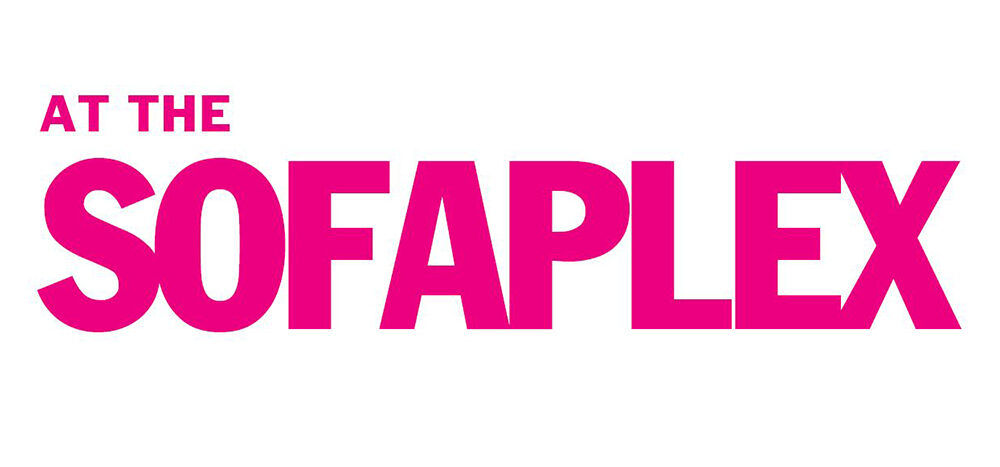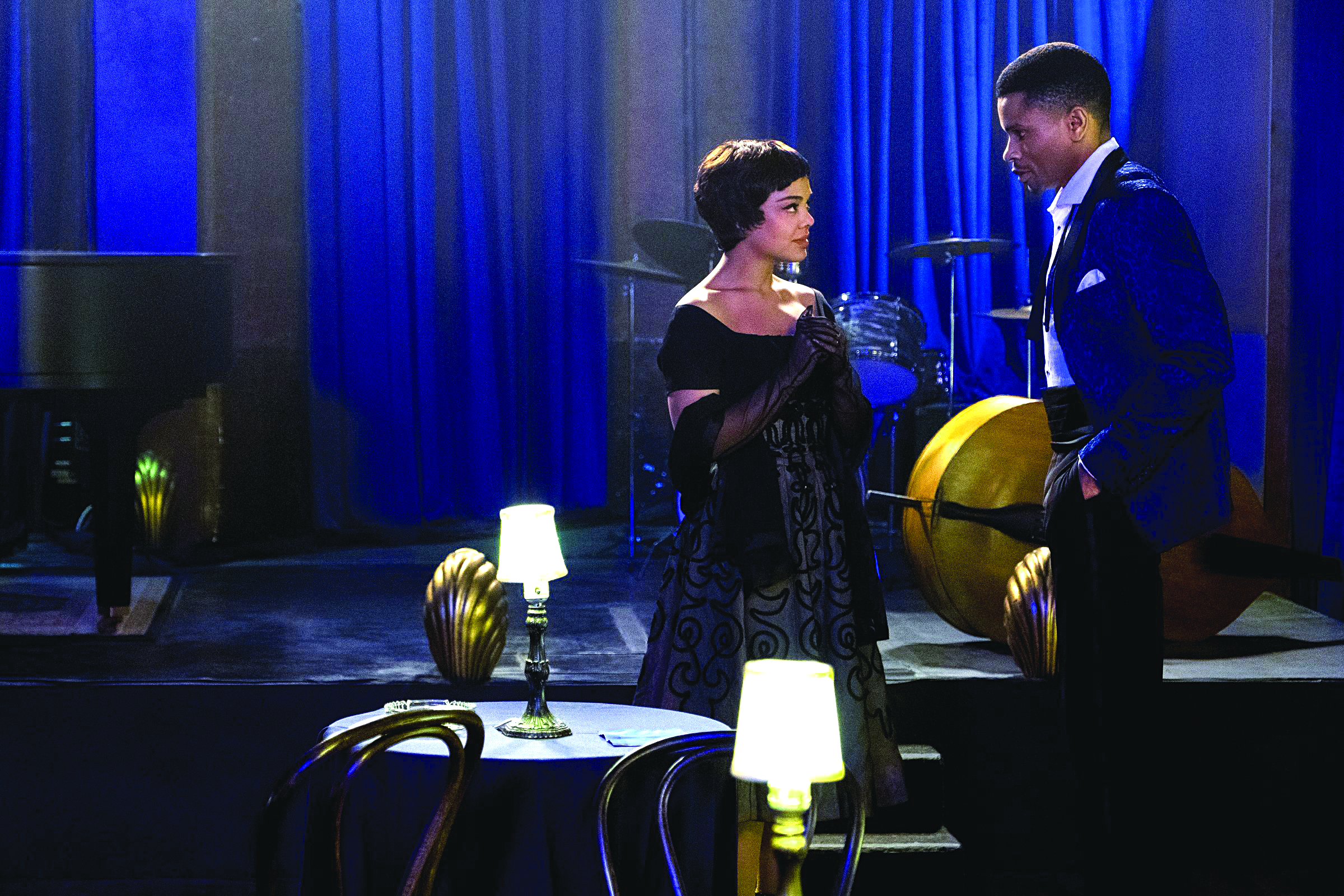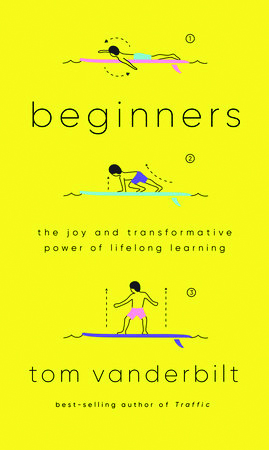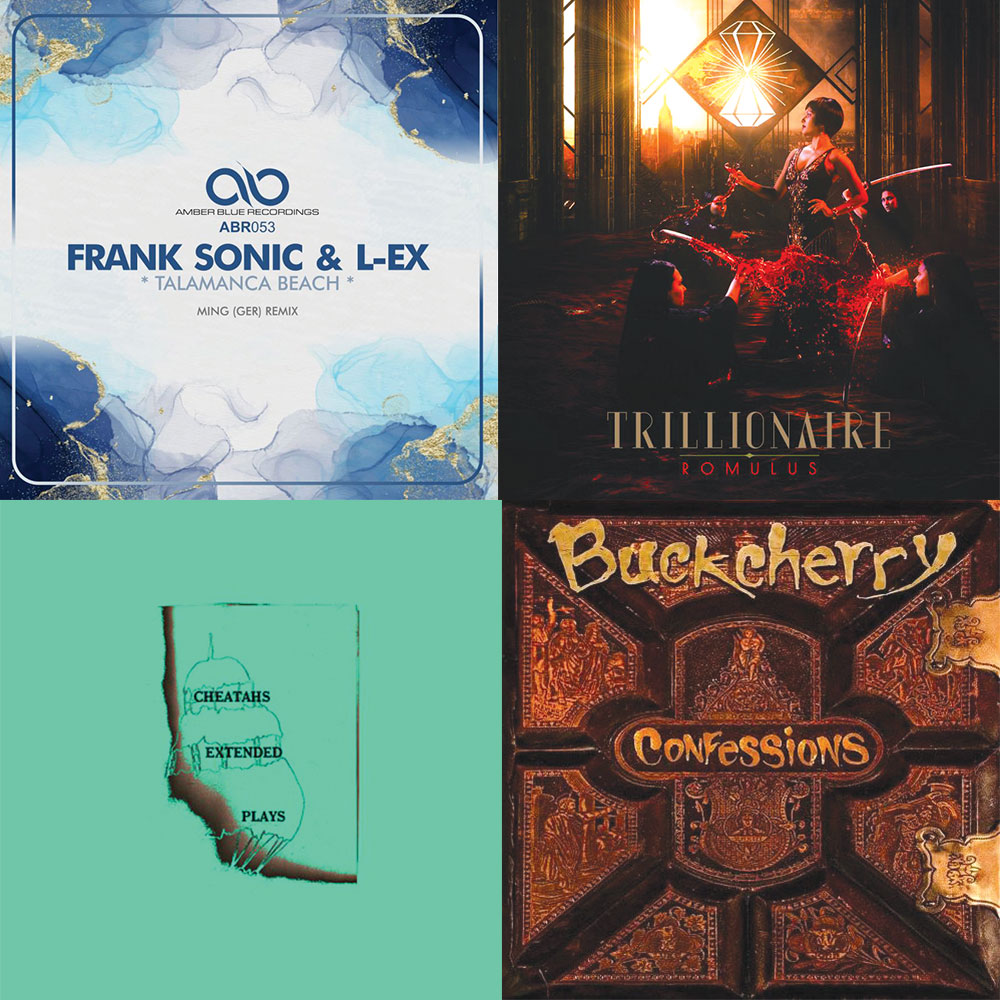Beginners, by Tom Vanderbilt (Knopf, 320 pages)
If you’ve ever considered learning something after the age of 8, chances are you’ve been told how difficult it would be. It’s easier to learn a language or how to ski, or start to play an instrument, with the benefit of a young brain and the absence of fear.
Tom Vanderbilt acknowledged the challenge before him when he decided in his late 40s to learn to play chess with his young daughter. One researcher told Vanderbilt that his daughter would learn the game twice as fast as he could.
But, as they say, age and treachery can overcome youth and skill. And Vanderbilt wasn’t willing to accept being consigned to the indignity of being an “adult learner,” with the expectation that he was going to learn a new skill poorly, if at all. He decided to put up a fight. And what he learned, presented in Beginners, challenges the idea that our brains are on conveyor belts headed down after we reach a certain age, and that it’s not worth the effort to learn new skills.
Vanderbilt argues that we all should be learning new things right up to the time when the hooded guy with the scythe shows up. It doesn’t matter whether we have time, or if the things we learn have any obvious connection to our jobs, he says. Learning anything new, whether a skill or fact, delights our brains, which crave novelty. And it’s not just the things that we learn that benefit our lives, but the act of learning itself. There’s evidence, in fact, Vanderbilt writes, that taking on the challenge of learning multiple things at once — for example, signing up to learn Italian in the same month you’re also taking up crocheting — is even better for the brain than undertaking one new thing. And while that may sound stressful, taking up new pursuits actually alleviates stress, research has shown.
In any new or difficult endeavor, people often advocate “baby steps,” and Vanderbilt begins by drilling down on how children actually learn to walk. It’s not a side gig. Babies spend about a third of their day practicing walking for six months, and they don’t actually get it down perfectly until several years later, he says. They don’t learn to walk by marching about in straight lines, but by wandering across different surfaces in different patterns. And, of course, they fall down a lot. Learning for adults is much like that, Vanderbilt says. “Development does not always march uniformly in one direction. Infants may learn to walk, then briefly revert to crawling. Always be on the edge of the impossible,” he writes, adding, “Remember: If it feels easy, you’re probably not learning.”
Vanderbilt’s own journey of being a beginner began with chess but then expanded to singing, surfing, swimming and jewelry making, among other things. Given that his explorations were done in pursuit of a book, he had the blessing of a supportive wife and tax deductions to support his research. He took singing lessons, for example, from a New York voice coach who also teaches famous actors, and he acknowledges that the lessons were not cheap. He later joins a chorus to enjoy the twin benefits of using his new skills and learning in a social setting (which is even better for us than learning on our own).
People who don’t have the time or resources to learn new things under the tutelage of coaches in idyllic settings (he engages in “wild swimming,” for example, off the coast of Greece) may experience Beginners as a somewhat impractical guide to what aspirational Americans do when they have too much time on their hands. But we live in a time when virtually any skill can be acquired via YouTube; in fact, one 70-year-old woman Vanderbilt met in the Bahamas had taught herself to swim by watching videos online. As such, Beginners is a useful and engaging companion to any new pursuit, validation that even if you don’t turn into an Ironman or Grandmaster, no, you’re not wasting your time learning how to swim or play chess.
As a bonus, Vanderbilt offers aid and comfort to anyone who finds their memory isn’t what it used to be. Our brains are less efficient as we age, not merely because of biological degradation but because they contain so much stuff, he writes. “You’ve no doubt found, as you’ve gotten older, that you sometimes struggle to retrieve the name of a film or person. Of course you do! It’s because you’ve seen thousands of films and met thousands of people. Try implanting five decades of raw data into a kid and let’s see how they do,” he says. B+
BOOK NOTES
People on both sides of the political divide reverently quote him, so it’s easy to forget that Martin Luther King Jr. was a controversial figure in his day.
It’s even harder to fathom how controversial he was when you read some of what King actually wrote and said, which often reaches the heights of poetry.
For anyone who has only read about the civil rights leader we honor on Monday, and not actually read what he’s written, there’s a rich library of his words that has aged especially well, beginning with Where Do We Go From Here? Chaos or Community? (Beacon Press, 256 pages).
Another good option for the novice King reader is A Testament of Hope, The Essential Writings and Speeches, edited by James M. Washington (HarperOne, 736 pages).
Meanwhile, adding to multiple substantive biographies about King, there’s a new book out this month that looks promising. Nine Days: The Race to Save Martin Luther King Jr.’s Life and Win the 1960 Election is something of a historical thriller (Farrar, Straus and Giroux, 368 pages). It’s by Paul Kendrick and Steven Kendrick, a father-son team who have collaborated on two other historical books: Douglass and Lincoln: How a Revolutionary Black Leader and a Reluctant Liberator Struggled to End Slavery and Save the Union and Sarah’s Long Walk: The Free Blacks of Boston and How Their Struggle for Equality Changed America.
Also of note in the month we honor King:
One of King’s successors at Ebenezer Baptist Church in Atlanta is Raphael Warnock, who recently won one of the hotly contested U.S. Senate seats in Georgia.
It remains to be seen if Warnock has King’s rhetorical gifts, but he’s got a book, The Divided Mind of the Black Church, which was released in paperback last month (NYU Press, 278 pages). Promotional material says it’s an exploration of what the priority of the Black church should be: saving souls or transforming the social order.
Books
Author events
• DR. JARED ROSS HARDESTY Author of Black Lives, Native Lands, White Worlds: A History of Slavery in New England (2019) presents a virtual lecture, “Confronting Slavery in Early New England: History, Sources and Interpetation.” Thurs., Jan. 14, 6:30 p.m. Part of The Moffatt-Ladd House and Garden’s free public winter continuing education series. Registration is required. Email education.moffatt.ladd@gmail.com to receive the link to the Zoom event.
• REBECCA CARROLL Author presents Surviving the White Gaze. Virtual livestream hosted by The Music Hall in Portsmouth. Tues., Feb. 2, 7 p.m. Tickets cost $5. Call 436-2400 or visit themusichall.org.
• SUSAN CONLEY Author presents Landslide. Hosted by Gibson’s Bookstore in Concord. Online, via Zoom. Thurs., Feb. 11, 7 p.m. Registration required. Visit gibsonsbookstore.com or call 224-0562.
• DIANE REHM Author presents When My Time Comes. Virtual livestream hosted by The Music Hall in Portsmouth. Tues., Feb. 23, 7 p.m. Tickets cost $5. Call 436-2400 or visit themusichall.org.
• THERESA CAPUTO the star of TLC’s Long Island Medium will present “Theresa Caputo: The Experience Live” at the Capitol Center for the Arts (44 S. Main St. Concord, ccanh.com) on Wed., April 7, 7:30 p.m. Tickets start at $39.75 (with option for a VIP Photo Op for an additional $49.95).
Book Clubs
• BOOKERY Online. Monthly. Third Thursday, 6 p.m. Bookstore based in Manchester. Visit bookerymht.com/online-book-club or call 836-6600.
• GIBSON’S BOOKSTORE Online, via Zoom. Monthly. First Monday, 5:30 p.m. Bookstore based in Concord. Visit gibsonsbookstore.com/gibsons-book-club-2020-2021 or call 224-0562.
• TO SHARE BREWING CO. 720 Union St., Manchester. Monthly. Second Thursday, 6 p.m. RSVP required. Visit tosharebrewing.com or call 836-6947.
Language
• FRENCH LANGUAGE AND LITERATURE CLASSES
Offering remotely by the Franco-American Centre. Six-week winter session runs Jan. 21 through Feb. 25, with classes held Thursdays from 6:30 to 8:30 p.m. Spring session dates TBA. $225. Visit facnh.com/education or call 623-1093.
Special events
• EXETER LITFEST Literary festival will feature local authors, keynote speaker Victoria Arlen, book launches, a Saturday morning story hour for kids, and programs on various topics including publishing tips, mystery writing and homeschooling. Hosted virtually via Zoom by Exeter TV. Thurs., April 1, through Sat., April 3. Free and open to the public. Visit exeterlitfest.com.
Featured photo: Beginners, by Tom Vanderbilt






